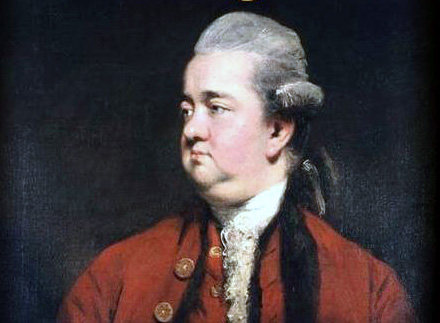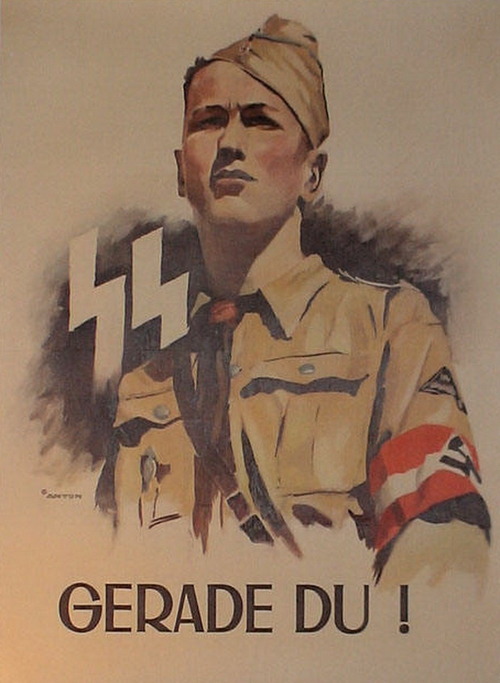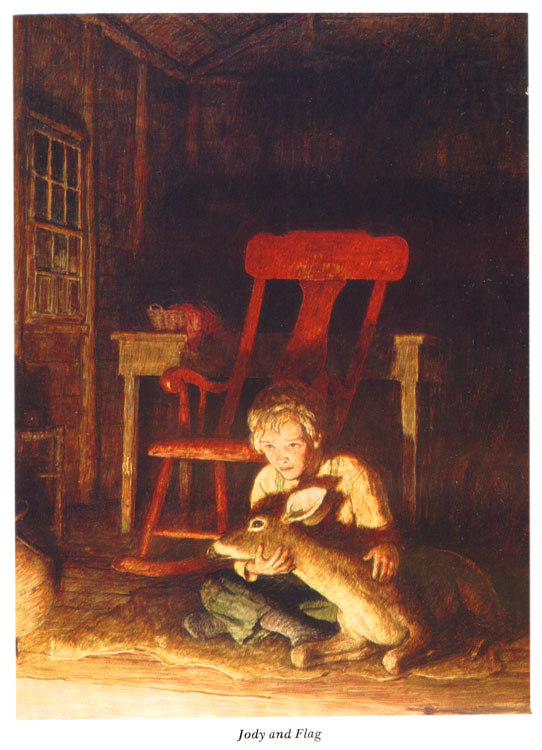
The History of the Decline and Fall
of the Roman Empire
Chapter XXII:
Julian Declared Emperor
Part III
Philosophy had instructed Julian to compare the advantages of action and retirement; but the elevation of his birth, and the accidents of his life, never allowed him the freedom of choice. He might perhaps sincerely have preferred the groves of the academy, and the society of Athens; but he was constrained, at first by the will, and afterwards by the injustice, of Constantius, to expose his person and fame to the dangers of Imperial greatness; and to make himself accountable to the world, and to posterity, for the happiness of millions.
Julian recollected with terror the observation of his master Plato, that the government of our flocks and herds is always committed to beings of a superior species; and that the conduct of nations requires and deserves the celestial powers of the gods or of the genii. From this principle he justly concluded, that the man who presumes to reign, should aspire to the perfection of the divine nature; that he should purify his soul from her mortal and terrestrial part; that he should extinguish his appetites, enlighten his understanding, regulate his passions, and subdue the wild beast, which, according to the lively metaphor of Aristotle, seldom fails to ascend the throne of a despot.
The throne of Julian, which the death of Constantius fixed on an independent basis, was the seat of reason, of virtue, and perhaps of vanity. He despised the honors, renounced the pleasures, and discharged with incessant diligence the duties, of his exalted station; and there were few among his subjects who would have consented to relieve him from the weight of the diadem, had they been obliged to submit their time and their actions to the rigorous laws which that philosophic emperor imposed on himself.
One of his most intimate friends, who had often shared the frugal simplicity of his table, has remarked, that his light and sparing diet (which was usually of the vegetable kind) left his mind and body always free and active, for the various and important business of an author, a pontiff, a magistrate, a general, and a prince. In one and the same day, he gave audience to several ambassadors, and wrote, or dictated, a great number of letters to his generals, his civil magistrates, his private friends, and the different cities of his dominions.
He listened to the memorials which had been received, considered the subject of the petitions, and signified his intentions more rapidly than they could betaken in short-hand by the diligence of his secretaries. He possessed such flexibility of thought, and such firmness of attention, that he could employ his hand to write, his ear to listen, and his voice to dictate; and pursue at once three several trains of ideas without hesitation, and without error.
While his ministers reposed, the prince flew with agility from one labor to another, and, after a hasty dinner, retired into his library, till the public business, which he had appointed for the evening, summoned him to interrupt the prosecution of his studies. The supper of the emperor was still less substantial than the former meal; his sleep was never clouded by the fumes of indigestion; and except in the short interval of a marriage, which was the effect of policy rather than love, the chaste Julian never shared his bed with a female companion.
He was soon awakened by the entrance of fresh secretaries, who had slept the preceding day; and his servants were obliged to wait alternately while their indefatigable master allowed himself scarcely any other refreshment than the change of occupation. The predecessors of Julian, his uncle, his brother, and his cousin, indulged their puerile taste for the games of the Circus, under the specious pretence of complying with the inclinations of the people; and they frequently remained the greatest part of the day as idle spectators, and as a part of the splendid spectacle, till the ordinary round of twenty-four races was completely finished.
On solemn festivals, Julian, who felt and professed an unfashionable dislike to these frivolous amusements, condescended to appear in the Circus; and after bestowing a careless glance at five or six of the races, he hastily withdrew with the impatience of a philosopher, who considered every moment as lost that was not devoted to the advantage of the public or the improvement of his own mind. By this avarice of time, he seemed to protract the short duration of his reign; and if the dates were less securely ascertained, we should refuse to believe, that only sixteen months elapsed between the death of Constantius and the departure of his successor for the Persian war.
The actions of Julian can only be preserved by the care of the historian; but the portion of his voluminous writings, which is still extant, remains as a monument of the application, as well as of the genius, of the emperor. The Misopogon, the Cæsars, several of his orations, and his elaborate work against the Christian religion, were composed in the long nights of the two winters, the former of which he passed at Constantinople, and the latter at Antioch.
The reformation of the Imperial court was one of the first and most necessary acts of the government of Julian. Soon after his entrance into the palace of Constantinople, he had occasion for the service of a barber. An officer, magnificently dressed, immediately presented himself. “It is a barber,” exclaimed the prince, with affected surprise, “that I want, and not a receiver-general of the finances.” He questioned the man concerning the profits of his employment and was informed, that besides a large salary, and some valuable perquisites, he enjoyed a daily allowance for twenty servants, and as many horses.
A thousand barbers, a thousand cup-bearers, a thousand cooks, were distributed in the several offices of luxury; and the number of eunuchs could be compared only with the insects of a summer’s day. The monarch who resigned to his subjects the superiority of merit and virtue, was distinguished by the oppressive magnificence of his dress, his table, his buildings, and his train. The stately palaces erected by Constantine and his sons, were decorated with many colored marbles, and ornaments of massy gold. The most exquisite dainties were procured, to gratify their pride, rather than their taste; birds of the most distant climates, fish from the most remote seas, fruits out of their natural season, winter roses, and summer snows.
The domestic crowd of the palace surpassed the expense of the legions; yet the smallest part of this costly multitude was subservient to the use, or even to the splendor, of the throne. The monarch was disgraced, and the people was injured, by the creation and sale of an infinite number of obscure, and even titular employments; and the most worthless of mankind might purchase the privilege of being maintained, without the necessity of labor, from the public revenue. The waste of an enormous household, the increase of fees and perquisites, which were soon claimed as a lawful debt, and the bribes which they extorted from those who feared their enmity, or solicited their favor, suddenly enriched these haughty menials.
They abused their fortune, without considering their past, or their future, condition; and their rapine and venality could be equalled only by the extravagance of their dissipations. Their silken robes were embroidered with gold, their tables were served with delicacy and profusion; the houses which they built for their own use, would have covered the farm of an ancient consul; and the most honorable citizens were obliged to dismount from their horses, and respectfully to salute a eunuch whom they met on the public highway.
The luxury of the palace excited the contempt and indignation of Julian, who usually slept on the ground, who yielded with reluctance to the indispensable calls of nature; and who placed his vanity, not in emulating, but in despising, the pomp of royalty. By the total extirpation of a mischief which was magnified even beyond its real extent, he was impatient to relieve the distress, and to appease the murmurs of the people; who support with less uneasiness the weight of taxes, if they are convinced that the fruits of their industry are appropriated to the service of the state. But in the execution of this salutary work, Julian is accused of proceeding with too much haste and inconsiderate severity.
By a single edict, he reduced the palace of Constantinople to an immense desert, and dismissed with ignominy the whole train of slaves and dependants, without providing any just, or at least benevolent, exceptions, for the age, the services, or the poverty, of the faithful domestics of the Imperial family. Such indeed was the temper of Julian, who seldom recollected the fundamental maxim of Aristotle, that true virtue is placed at an equal distance between the opposite vices.
The splendid and effeminate dress of the Asiatics, The curls and paint, the collars and bracelets, which had appeared so ridiculous in the person of Constantine, were consistently rejected by his philosophic successor. But with the fopperies, Julian affected to renounce the decencies of dress; and seemed to value himself for his neglect of the laws of cleanliness. In a satirical performance, which was designed for the public eye, the emperor descants with pleasure, and even with pride, on the length of his nails, and the inky blackness of his hands; protests, that although the greatest part of his body was covered with hair, the use of the razor was confined to his head alone; and celebrates, with visible complacency, the shaggy and populous beard, which he fondly cherished, after the example of the philosophers of Greece.
Had Julian consulted the simple dictates of reason, the first magistrate of the Romans would have scorned the affectation of Diogenes, as well as that of Darius. But the work of public reformation would have remained imperfect, if Julian had only corrected the abuses, without punishing the crimes, of his predecessor’s reign. “We are now delivered,” says he, in a familiar letter to one of his intimate friends, “we are now surprisingly delivered from the voracious jaws of the Hydra. I do not mean to apply the epithet to my brother Constantius.
He is no more; may the earth lie light on his head! But his artful and cruel favorites studied to deceive and exasperate a prince, whose natural mildness cannot be praised without some efforts of adulation. “It is not, however, my intention, that even those men should be oppressed: they are accused, and they shall enjoy the benefit of a fair and impartial trial.” To conduct this inquiry, Julian named six judges of the highest rank in the state and army; and as he wished to escape the reproach of condemning his personal enemies, he fixed this extraordinary tribunal at Chalcedon, on the Asiatic side of the Bosphorus; and transferred to the commissioners an absolute power to pronounce and execute their final sentence, without delay, and without appeal.
The office of president was exercised by the venerable præfect of the East, a second Sallust, whose virtues conciliated the esteem of Greek sophists, and of Christian bishops. He was assisted by the eloquent Mamertinus, one of the consuls elect, whose merit is loudly celebrated by the doubtful evidence of his own applause. But the civil wisdom of two magistrates was overbalanced by the ferocious violence of four generals, Nevitta, Agilo, Jovinus, and Arbetio. Arbetio, whom the public would have seen with less surprise at the bar than on the bench, was supposed to possess the secret of the commission; the armed and angry leaders of the Jovian and Herculian bands encompassed the tribunal; and the judges were alternately swayed by the laws of justice, and by the clamors of faction.
The chamberlain Eusebius, who had so long abused the favor of Constantius, expiated, by an ignominious death, the insolence, the corruption, and cruelty of his servile reign. The executions of Paul and Apodemius (the former of whom was burnt alive) were accepted as an inadequate atonement by the widows and orphans of so many hundred Romans, whom those legal tyrants had betrayed and murdered. But justice herself (if we may use the pathetic expression of Ammianus ) appeared to weep over the fate of Ursulus, the treasurer of the empire; and his blood accused the ingratitude of Julian, whose distress had been seasonably relieved by the intrepid liberality of that honest minister.
The rage of the soldiers, whom he had provoked by his indiscretion, was the cause and the excuse of his death; and the emperor, deeply wounded by his own reproaches and those of the public, offered some consolation to the family of Ursulus, by the restitution of his confiscated fortunes. Before the end of the year in which they had been adorned with the ensigns of the prefecture and consulship, Taurus and Florentius were reduced to implore the clemency of the inexorable tribunal of Chalcedon.
The former was banished to Vercellæ in Italy, and a sentence of death was pronounced against the latter. A wise prince should have rewarded the crime of Taurus: the faithful minister, when he was no longer able to oppose the progress of a rebel, had taken refuge in the court of his benefactor and his lawful sovereign. But the guilt of Florentius justified the severity of the judges; and his escape served to display the magnanimity of Julian, who nobly checked the interested diligence of an informer, and refused to learn what place concealed the wretched fugitive from his just resentment.
Some months after the tribunal of Chalcedon had been dissolved, the prætorian vicegerent of Africa, the notary Gaudentius, and Artemius duke of Egypt, were executed at Antioch. Artemius had reigned the cruel and corrupt tyrant of a great province; Gaudentius had long practised the arts of calumny against the innocent, the virtuous, and even the person of Julian himself.
Yet the circumstances of their trial and condemnation were so unskillfully managed, that these wicked men obtained, in the public opinion, the glory of suffering for the obstinate loyalty with which they had supported the cause of Constantius. The rest of his servants were protected by a general act of oblivion; and they were left to enjoy with impunity the bribes which they had accepted, either to defend the oppressed, or to oppress the friendless.
This measure, which, on the soundest principles of policy, may deserve our approbation, was executed in a manner which seemed to degrade the majesty of the throne. Julian was tormented by the importunities of a multitude, particularly of Egyptians, who loudly redemanded the gifts which they had imprudently or illegally bestowed; he foresaw the endless prosecution of vexatious suits; and he engaged a promise, which ought always to have been sacred, that if they would repair to Chalcedon, he would meet them in person, to hear and determine their complaints.
But as soon as they were landed, he issued an absolute order, which prohibited the watermen from transporting any Egyptian to Constantinople; and thus detained his disappointed clients on the Asiatic shore till, their patience and money being utterly exhausted, they were obliged to return with indignant murmurs to their native country.







